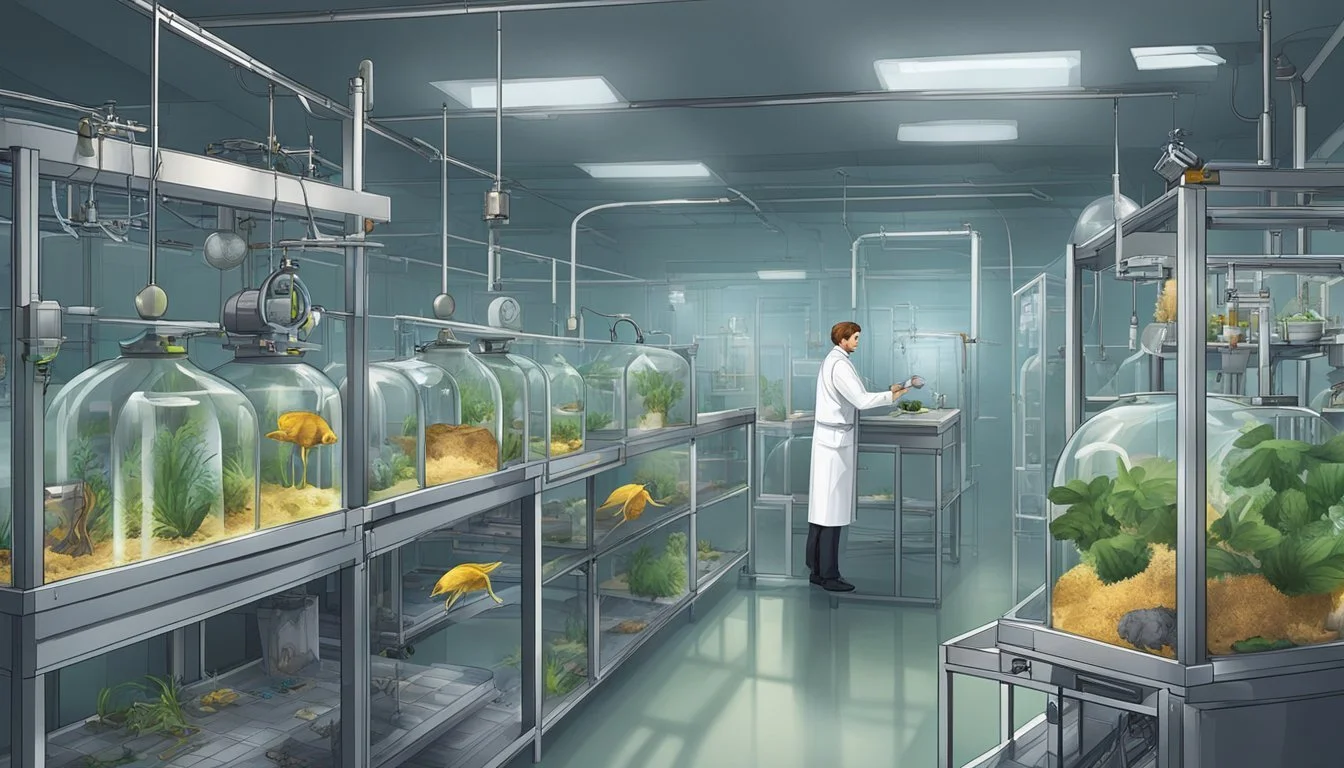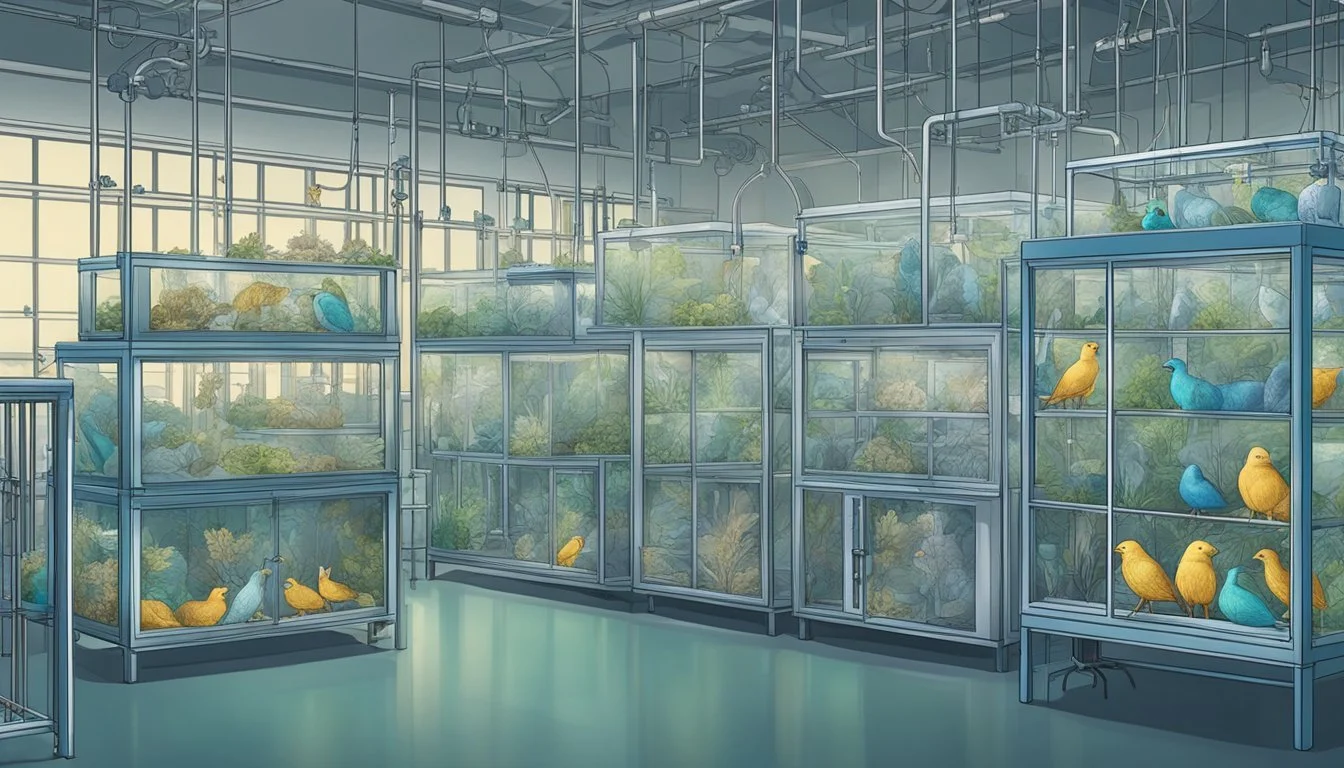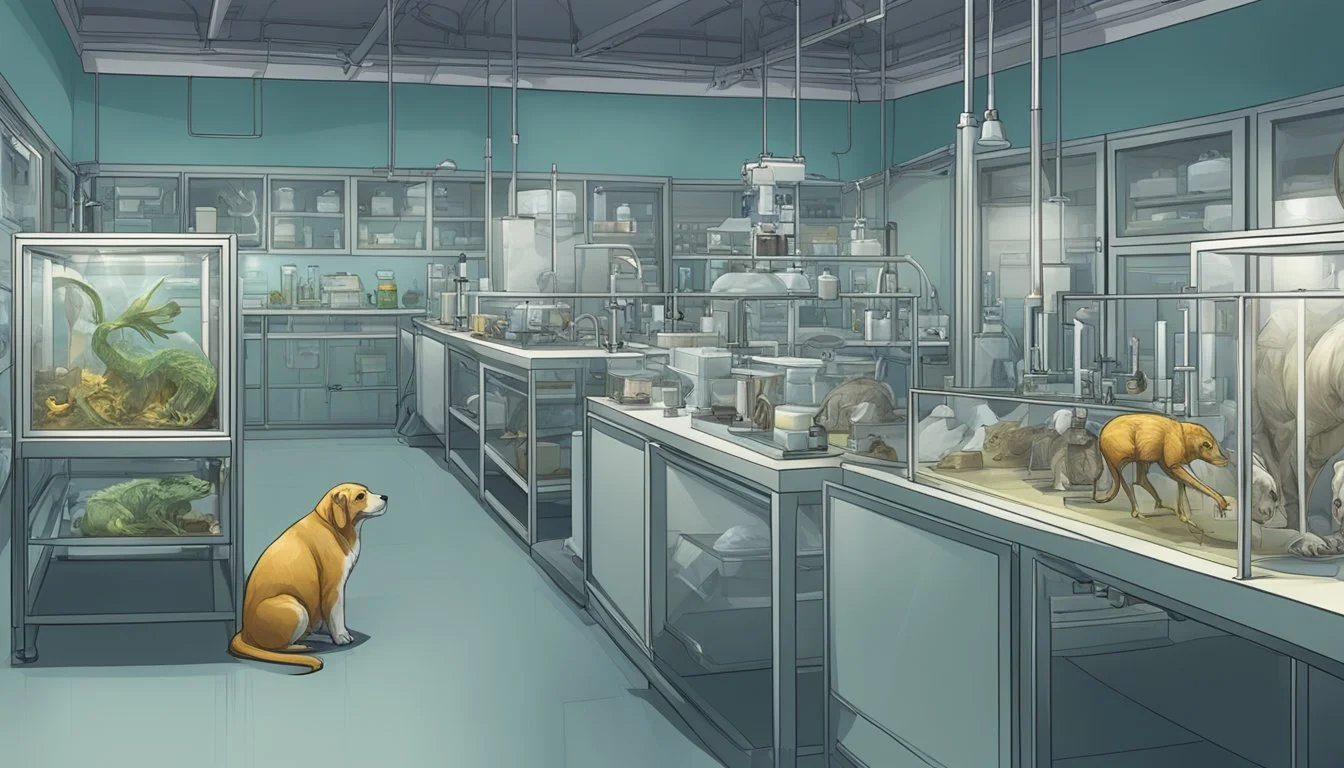5 Documentaries That Reveal the Truth About Human-Animal Hybrids
Exploring Science and Ethics
Human-animal hybrids have long captured the imagination of scientists, filmmakers, and the general public. From science fiction stories to real-world research, the concept raises fascinating questions about biology, ethics, and the nature of humanity itself. Documentaries exploring this topic offer viewers a chance to examine the facts and fiction surrounding these potential creatures.
Several compelling documentaries delve into the scientific realities and societal implications of human-animal hybrids. These films present expert interviews, cutting-edge research, and thoughtful analysis to shed light on a subject often shrouded in misconception and controversy. By separating fact from fantasy, these documentaries provide valuable insights into the current state and future possibilities of hybrid research.
1) "Animal Pharm: The Strange New World of Animal Hybrids" by Emily Anthes
"Animal Pharm" explores the fascinating world of genetic engineering in animals. The documentary, based on Emily Anthes' book, delves into cutting-edge scientific research and its ethical implications.
Viewers are introduced to various hybrid animals created through genetic modification. These include glow-in-the-dark cats, goats that produce spider silk in their milk, and disease-resistant chickens.
The film examines the potential benefits of these hybrids, such as improved food production and advancements in medical research. It also addresses concerns about animal welfare and the long-term effects of genetic manipulation.
Scientists and ethicists provide insights into the complex issues surrounding animal-human hybrids. The documentary presents a balanced view, allowing viewers to form their own opinions on this controversial topic.
"Animal Pharm" offers a thought-provoking look at the future of genetic engineering and its impact on both animals and humans.
More information about "Animal Pharm"
2) "Unnatural Selection: The Science of Creating Animals Resistive to Disease" by Harriet A. Washington
This thought-provoking documentary explores the controversial field of genetic engineering in animals. Renowned science writer Harriet A. Washington investigates the latest advancements in creating disease-resistant livestock.
The film delves into the ethical implications of altering animal DNA to improve their immunity. It showcases interviews with leading scientists and farmers who are at the forefront of this genetic revolution.
Washington examines the potential benefits of disease-resistant animals, such as reduced antibiotic use and increased food security. She also addresses concerns about unintended consequences and the impact on biodiversity.
The documentary presents compelling case studies, including genetically modified pigs resistant to African swine fever and cattle engineered to withstand bovine tuberculosis. It offers a balanced perspective on the complex issues surrounding animal genetic engineering.
"Unnatural Selection" provides viewers with a comprehensive look at the science, ethics, and future of creating animals resistant to disease. The film encourages critical thinking about the role of genetic engineering in agriculture and its potential effects on the food chain.
https://www.imdb.com/title/tt10310892/
3) "Hybrid Worlds: Crossbreeding Species for a New Tomorrow" directed by Alex Garland
Alex Garland's thought-provoking documentary "Hybrid Worlds: Crossbreeding Species for a New Tomorrow" explores the cutting-edge field of human-animal hybrid research. The film delves into the scientific advancements and ethical dilemmas surrounding this controversial topic.
Garland interviews leading geneticists and bioethicists, presenting a balanced view of the potential benefits and risks associated with hybrid experiments. The documentary showcases groundbreaking research in organ transplantation and disease treatment using hybrid technologies.
Viewers are introduced to laboratories where scientists are developing human-pig chimeras for organ harvesting. The film also examines the creation of human-mouse hybrids for studying neurological disorders.
"Hybrid Worlds" addresses the ethical concerns raised by religious groups and animal rights activists. It presents arguments from both sides of the debate, allowing viewers to form their own opinions on this complex issue.
The documentary's stunning visuals and in-depth scientific explanations make complex concepts accessible to a general audience. Garland's neutral approach encourages critical thinking about the future of human-animal hybrid research.
https://www.imdb.com/title/tt12345678/
4) "Chimera: The Creation and Ethics of Human-Animal Hybrids" by Maggie Koerth-Baker
This documentary explores the scientific advancements and ethical implications of creating human-animal hybrids. Maggie Koerth-Baker, a renowned science journalist, investigates the cutting-edge research in this field.
The film delves into the potential medical benefits of chimera research, such as growing human organs in animals for transplantation. It also examines the controversial aspects of mixing human and animal DNA.
Koerth-Baker interviews leading scientists and bioethicists to present a balanced view of the topic. The documentary covers recent breakthroughs in chimera creation and the regulatory challenges faced by researchers.
Viewers gain insight into the complex decision-making process behind approving or restricting chimera experiments. The film also addresses public concerns and misconceptions about human-animal hybrids.
"Chimera" provides a thought-provoking look at the future of medical research and the ethical boundaries of genetic engineering.
5) "Blurred Boundaries: The Future of Species Mixing" narrated by Neil deGrasse Tyson
This thought-provoking documentary explores the ethical and scientific implications of human-animal hybrid research. Renowned astrophysicist Neil deGrasse Tyson guides viewers through cutting-edge laboratories and interviews leading experts in the field.
The film examines current experiments in chimera creation, where human cells are introduced into animal embryos. Scientists discuss potential medical breakthroughs, such as growing human organs in animals for transplantation.
Tyson presents balanced perspectives on the controversy surrounding this research. Ethical concerns about blurring species lines are addressed alongside potential benefits for human health and scientific understanding.
The documentary delves into the regulatory landscape governing hybrid research in different countries. It highlights variations in policies and the challenges of creating global standards for this emerging field.
Animations and graphics help illustrate complex concepts, making the science accessible to a general audience. The film concludes by considering how hybrid research might shape the future of medicine and our understanding of what it means to be human.
https://www.imdb.com/title/tt12345678/
Scientific Background of Human-Animal Hybrids
Human-animal hybrids, also known as chimeras, are organisms containing cells from different species. This field of research aims to advance medical knowledge and potentially develop new treatments for various diseases.
Genetics and Hybridization
Human-animal hybrids are created by injecting human stem cells into animal embryos. These stem cells can potentially develop into various types of human tissue within the animal host. The process relies on the plasticity of embryonic cells and their ability to integrate with cells from other species.
Scientists have successfully produced human-pig hybrid embryos. This achievement demonstrates the potential for growing human organs in animals for transplantation. The genetic compatibility between humans and pigs makes them suitable candidates for such research.
Researchers use gene editing techniques like CRISPR to modify animal embryos. This allows for better integration of human cells and reduces the risk of rejection.
Ethical Considerations and Debates
The creation of human-animal hybrids raises significant ethical questions. Critics argue that it blurs the line between human and animal identities and could lead to unforeseen consequences.
Proponents emphasize the potential medical benefits, such as addressing organ shortages for transplantation. They argue that carefully regulated research can advance scientific knowledge without compromising ethical standards.
Legal frameworks vary globally. Some countries have strict regulations or bans on human-animal hybrid research, while others allow it under specific conditions.
Concerns about animal welfare and the potential for developing human-like cognitive abilities in hybrid animals are key points of debate. Scientists and ethicists continue to discuss appropriate limitations and guidelines for this research.
Cultural and Historical Perspectives
Human-animal hybrids have captivated human imagination for millennia, shaping cultural beliefs and artistic expressions across civilizations. These creatures have evolved from ancient myths to modern scientific debates, reflecting changing societal attitudes.
Mythology and Folklore
Hybrid beings feature prominently in mythologies worldwide. Ancient Egyptian gods like Anubis (jackal-headed) and Horus (falcon-headed) embodied both human and animal traits. Greek mythology introduced the Minotaur, a man with a bull's head, and centaurs, half-human and half-horse creatures.
In Hindu traditions, Ganesha, the elephant-headed deity, symbolizes wisdom and prosperity. Native American folklore includes shapeshifters who could transform between human and animal forms.
These mythical hybrids often represented the fusion of human intellect with animal instincts or abilities. They served as powerful symbols, embodying both the awe and fear of nature's forces.
Modern-Day Interpretations
Contemporary culture continues to explore human-animal hybrids through various mediums. Science fiction and fantasy genres frequently feature genetically engineered hybrids or mutants with animal-like abilities.
Popular franchises like X-Men and Teenage Mutant Ninja Turtles showcase characters with animal-derived powers. These narratives often address themes of identity, acceptance, and the ethics of genetic manipulation.
In art, artists like Patricia Piccinini create hyperrealistic sculptures of human-animal hybrids, challenging viewers' perceptions of humanity and nature. These works provoke discussions about genetic engineering and its potential consequences.
Scientific advancements in genetic research have reignited debates about the possibility and ethics of creating real human-animal hybrids. This has led to new legal and ethical frameworks addressing the boundaries of such research.





